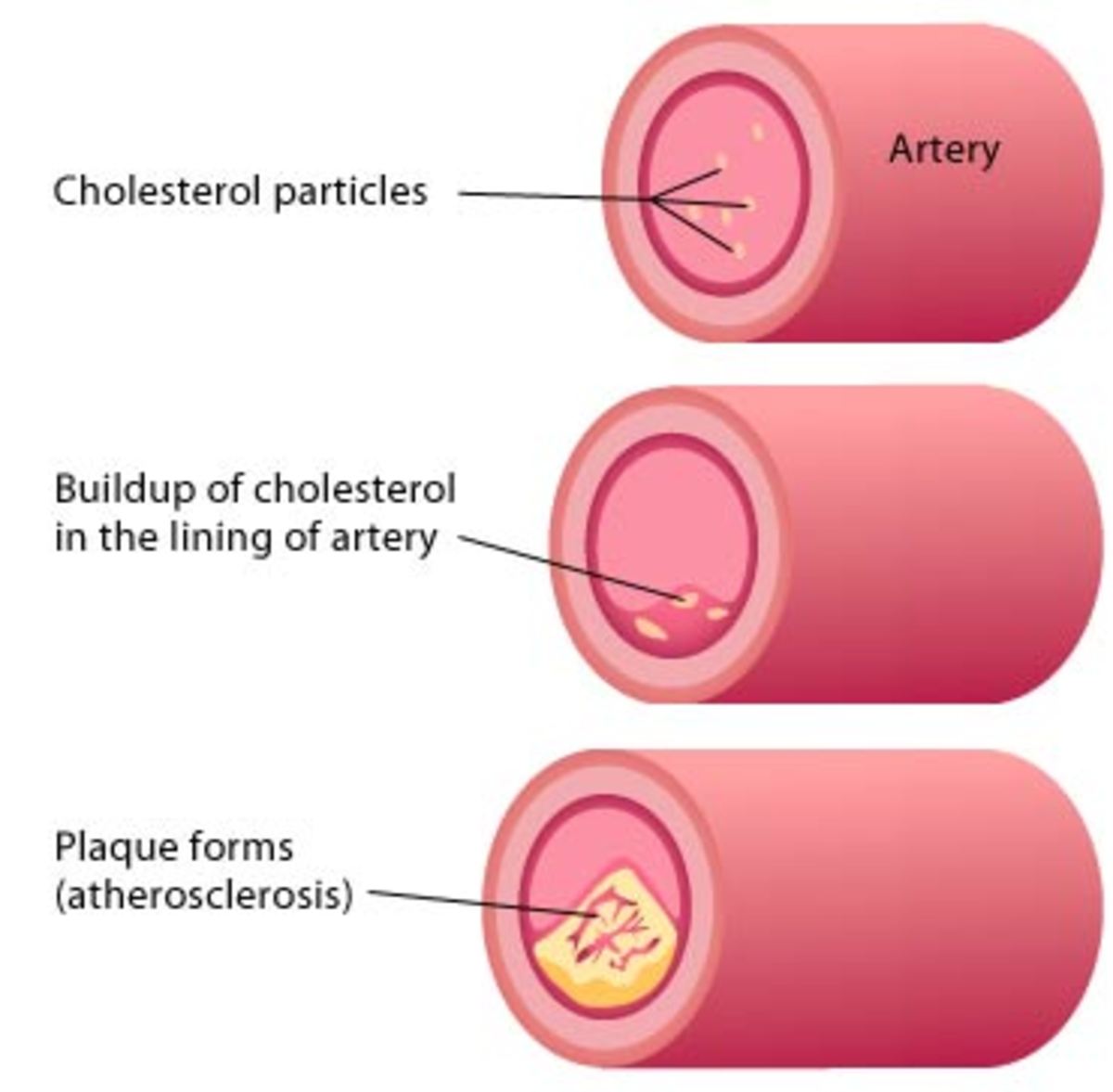- HubPages»
- Health»
- Diet & Weight Loss»
- Healthy Diets
Is It Healthy To Eat Eggs?

It seems that the advice about eating eggs keeps shifting.
One minute we should all avoid them because of the cholesterol.
The next minute we are told that eggs don't affect cholesterol at all and that we can eat them.
Then there are those that contend a healthy diet must avoid all meat and dairy.
What's the truth? Can we have an egg for breakfast and not feel guilty or is there a better alternative?
History of Eating Eggs
As far back as scholars can tell, people have been consuming eggs. Assuming you can get them when a watchful mother or father isn't looking, they are a relatively easy, high protein meal.
According to History and Science for Kids, the Chinese were the first to domesticate birds, using them for eggs and meat and taking some of the hunting work out of the equation.
Traditionally eggs were only laid during the spring (which is part of the reason spring Easter eggs became such a tradition) but as farmers figured out how to build shelter for their animals, the birds would lay eggs throughout most of the year.
People enjoy eggs in all kinds of forms from raw to a major component of most cooking.
With the long history of this food, there has of course been some controversy, conflicting studies, and wrong information.
Recent Studies---Eggs Are Bad For You
Some recent studies have asserted that eggs are as bad for you as smoking.
According to Cynthia Sass, a study out of University of Western Ontario indicated that eggs were a food to avoid.
After a review of self-reported eating habits in older men, researchers discovered that people who ate at least three eggs a week had artery hardening akin to that of heavy smokers.
According to the doctor who published the study, Dr. David Spence, the yolk in the egg is the culprit.
Spence indicated in an interview with CNN that "“One jumbo chicken egg yolk has about 237 milligrams of cholesterol.”
But is this study accurate?
Other researchers indicate that we shouldn't be so hasty to eliminate eggs from our diet. They claim that they can be good for us and that the research out of Canada is flawed.

Recent Studies---Eggs Are Good For You
Other researchers have countered that the study from Canada did not take into account what else the subjects consumed.
If their entire diet consisted of processed foods that are high in saturated and trans fats or if they lacked exercise, then the egg may not be the culprit of their artery issues at all.
Further counter studies indicate that the egg has vitamins and proteins unique to the egg and that even daily consumption may actually be good for you.
According to Discovery Health, eggs have many important nutritional components including "vitamin A, potassium and many B vitamins like folic acid, choline and biotin."
The Harvard School of Public Health notes that unless you are diabetic (there are different eating guidelines for people with this disease), then eating one egg a day does not raise cholesterol or make you more likely to develop heart disease.
So Should We Worry About Eggs?
While eating eggs, overall, may not be as bad for you as earlier researchers thought, there is a dark side to egg consumption.
The most commonly bought and consumed eggs are chicken eggs.
But the way chickens are treated and what they are fed may make all the difference in the overall health of the egg and your benefits from eating them.
Factory Farm Chickens
Recently, the treatment of factory farm animals has been the subject of public debate.
Chickens can often be stacked on top of each other, and denied room to even spread their wings, much less exercise.
The picturesque idea of chickens clucking around the farmyard, pecking for bugs and worms is replaced by a large building with stacked cages, waste covered animals and general bad treatment.
As you can guess, the animals that come from this environment are stressed and studies have shown that the eggs they produce are often less nutritionally dense.
On top of that, many chickens are fed antibiotics which are passed on to their human consumer via the eggs and meat. Studies indicate this may be leading to human antibiotic resistance.
So for the average person, what are the alternatives for healthier eggs?

Cage Free Eggs, Organic Eggs, Free Range and Beyond
So if you are looking for alternatives to the factory farm eggs, how do you know what to buy?
How can you be sure that the chickens were treated humanely?
The USDA has guidelines for chicken treatment.
Here is a breakdown of the egg carton labels and what they mean.
Label
| What They Are Fed
| How They Are Treated
|
|---|---|---|
American Human Certified
| no restrictions on what the birds are fed
| can be in cages or cage-free, beak cutting allowed, no forced molting via starvation, 3rd party auditing
|
Animal Welfare Approved
| no restrictions on what the birds are fed, antibiotic use restricted to as-needed
| no cages, continuous outdoor access, not beak cutting, no forced molting, strict 3rd party auditing
|
Cage-Free
| no restrictions on what the birds are fed
| cage-free but no outdoor access, beak cutting permitted, no forced molting, no 3rd party auditing
|
Certified Humane
| no restrictions on what the birds are fed
| no cages, not required to have outdoor access, beak cutting but no forced molting, 3rd party audited, density requirements.
|
Certified Organic
| vegetarian diet, no antibiotics or pesticides, organic feed.
| no cages, inside but outdoor access, beak cutting and forced molting via starvation permitted, 3rd party auditing
|
Fertile
| no restrictions on what the birds are fed
| most likely cage-free, hens living with roosters
|
Food Alliance Certified
| no restrictions on what the birds are fed
| cage-free, access to outdoors, beak cutting permitted, no forced molting, 3rd party auditing
|
Free Roaming
| no restrictions on what the birds are fed
| cage-free, no 3rd party auditing, no other restrictions
|
Free-Range
| no restrictions on what the birds are fed
| no cages, inside but outdoor access, beak cutting and forced molting via starvation permitted, no 3rd party auditing
|
Natural
| no restrictions on what the birds are fed
| no restrictions on animal living conditions.
|
Omega-3 Enriched
| hens fed an Omega-3 heavy diet
| no restrictions on animal living conditions.
|
United Egg Producers Certified
| no restrictions on what the birds are fed
| sixty-seven square inches of cage space, beak cutting permitted, no forced molting via starvation, 3rd party auditing.
|
Vegetarian Fed
| no animal by-products in feed
| no restrictions on animal living conditions.
|
USDA egg carton labels and meanings.
While Animal Welfare Approved and Certified Organic seem to be your best bets for a low-stress animal likely to produce a healthier egg, as you can see from the table, all of the methods have their issues.
If you are still looking for a better alternative, you can also consider raising your own chickens.
Backyard chicken farming and urban chickens are becoming a popular alternative for many families.
Urban Chickens
Many people who live in urban or suburban areas are opting to raise and keep backyard chickens.
While some cities still have ordinances against keeping poultry in urban areas, many are either ignoring the ordinance or petitioning the city to change the rules.
Raising your own chickens insures their humane treatment as well as access to fresh eggs for the entire family.

Overall, eggs appear not to be the problem food that they were once thought to be.
To get the most health benefits from your egg, consider your carton labels, what the hen was fed and whether it was allowed to engage in natural chicken behavior.
With a little research, you can enjoy eggs for their health benefits while helping to insure that the animal itself was treated humanely.





